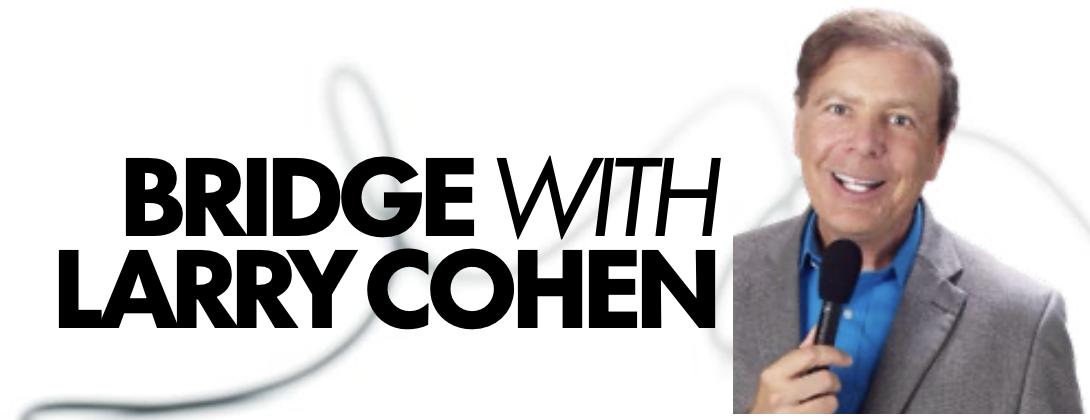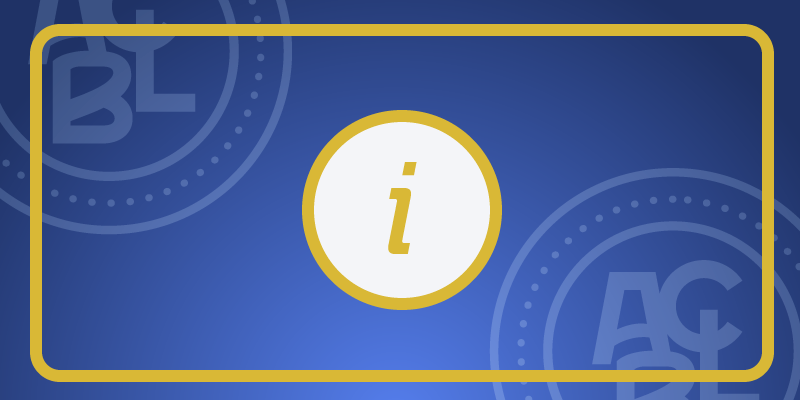



North-South have reached a very poor contract. As so often, each of the two players considers that partner is responsible for the accident. What do you think?
This time we will be looking at developments after a Negative Double when it goes:
The facts
The Club lead offers one trick in the suit, but then declarer is stuck with seven tricks whereas it is a walk in the park to get home with ten tricks in Spades when trumps are 3-2. Who forgot about a possible Spade fit?
Arguments
North: "The cue-bid of 3♣ asks if I have stopper in Clubs. The first thing you have to do is tell me that you have four Spades and bid 2♠ over 2♥. As you did not show your suit over 2♣, I will understand that you have only four cards."
South: "Why do you want me to bid my Spades? With four Hearts and four Spades you must respond 2♠ in order to be able to then cheaply bid your Hearts at the next level. I know that 3♣ asks for the Club stopper, but when you don’t have four Spades, 3 No-Trump is the only game to be found."
Verdict
Our two friends are in their fourth year of bridge and are struggling as they discover one of the most difficult sequences they need to study as they learn about Negative Doubles. Their arguments, which range from outdated to wrong, will help us get to the heart of the matter.
In the end, even though North and South’s arguments are all wrong, there was only one error in the bidding: when North responded 3NT to 3♣ instead of bidding 3♠.
The bid responsible for the accident
3NT over 3♣. North is 100% guilty. South, unknowingly, has made no mistake in the bidding!
The correct auction:
The facts
Serious accident. Our young friends stop at a part-score when even the grand slam is not too bad (on the fall of the Queen in a nine-card fit, which is 52.5%), and the small slam is laydown. Yet, this time we have two experienced players, who started the auction well, until they had an unexpected power failure. Who is guilty?
Arguments
North: "I didn’t think for a second that you could pass 4♦ after having jumped to 3♥ after my Double. I know that you will tell me that I must bid 4♣ but I thought this cue-bid might agree Hearts as trumps. When you have a doubt, you can at least bid game."
South: "But I had no doubt. I’ve already forced when I jumped to 3♥ when I had the bare minimum to justify this jump. When you respond 4♦, it’s time to stop. Yes, of course you have to bid 4♣ to show a forcing raise in Diamonds."
Verdict
I would not be surprised if many of you think like South that 4♦ is non-forcing, a simple preference with four Spades and four Diamonds and 8-10HCP. However, there is one sentence in South’s arguments that contradicts this analysis. South says: "I have the minimum of my 3♥ bid", implying that the range for this jump starts at 15HCP and has no upper limit. Which has an obvious consequence. This jump is game-forcing! This is all the more logical given that the jump to 3♥ necessarily shows an unbalanced hand, based on five Diamonds and four Hearts (a jump to 3♠ would show at least five Diamonds and four Spades). If responder has a minimum hand, he must have either four Hearts or four Diamonds and signs off in game – either 4♥ or 5♦. 4♦ is indeed a forcing raise, showing slam ambitions.
The bid responsible for the accident
South’s Pass over 4♦. South is 90% guilty. North could have anticipated the accident and responded 4♣.
The correct auction:
Missing the Queen of Diamonds, North signs off in 6♦.
The facts
This accident is more difficult to avoid. It is necessary to discover the absence of a Club stopper and to find the excellent contract of 5 Diamonds.
Arguments
North: "I’m caught short by your 3♠ bid. 3 No-Trump may be the last contract we can play if you have the Club stopper and I don’t see how to ask you for it."
South: "You’re right, and I don’t have a solution to this problem. Let’s say I’m more likely to be in the range of 8-10HCP when you have 19HCP in and, in that case, I’ll often have four Diamonds. Therefore, if you have to decide on one or the other, maybe bidding 4♦ over 3♠ will be the right decision more often."
Verdict
Well, one thing is clear, in the system as they play it, there is no perfect solution and South’s argument to give priority to playing 5 Diamonds rather than 3 No-Trump is a valid one. But let’s look back at the 3♣ bid, with which both our future champions had no problems. It shows either a balanced hand or a one-suiter in Diamonds that is too strong for a simple jump to 3♦ and looks for a Club stopper in case of the balanced hand. This cue-bid must not be done when holding both four card majors, a hand with which opener jumps to 4♥ after the Double: ♠AQ87 ♥KQ62 ♦AK6 ♣102.
It is therefore used either with hands with neither a four- card major nor the stopper, or with hands with one four- card major with or without a stopper. Without a major and with the stopper, opener obviously jumps to 3NT.
The pair therefore has two problems to solve: find either the 4-4 fit in a major, or the stopper in Clubs. Here’s the super-technical and slightly complicated solution:
Over 3♣, responder bids his major only when he has a stopper in Clubs and responds 3♦ without a Club stopper. With both four-card majors and a Club stopper, he responds 3NT.
Over the response of 3♦:
The bid responsible for the accident
3♠ over 3♣. South is 40%, responsible, he can’t invent a bid that he does not know. North is 60%, responsible, over 4♦ it would have been a better idea to respond 4♠ rather than 3NT.
The correct auction:
This article was written by Alain Lévy and was originally published in Bridgerama+.




I have no issue with the good quality analysis, except that French players too often abuse artificial agreements where common sense should solve most problems (that includes the last one here) without any memory. My moto to my students: just use your brain power in the bidding and leave memory for the play of the cards. My natural solution to the 3rd problem? I would replace the last 2 bids by 4H. Yes, 5D looks better, but simple is beautiful, and close enough to the best solution. Sure enough, you have kept your energy for the juicy challenges ahead.
Seriously, is in France 1D-2C-X-P/3M GF?